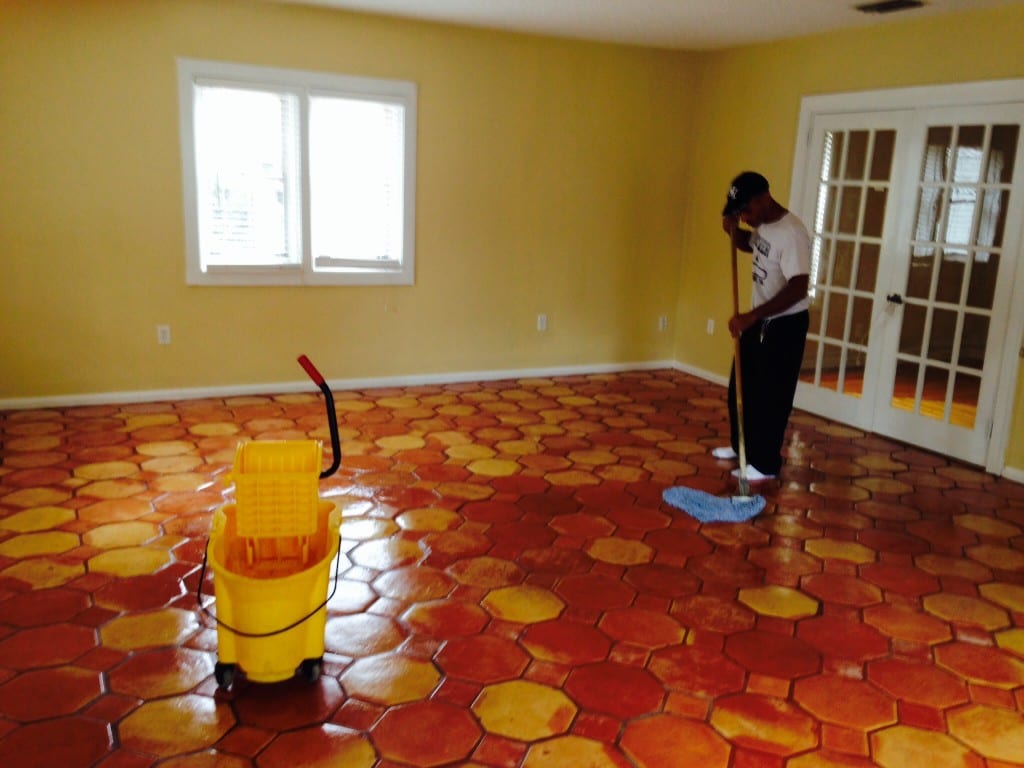
Limestone, marble and travertine are all quite similar in chemical composition and physical appearance. So, procedure for cleaning and taking care of the floor made of any of the 3 types of stones is practically the same. Travertine is the focus at the moment. The density of Travertine is lesser than Granite. So, it is sensitive to coffee, juice, wine and other acidic liquids.
The kind of finishing that is applied to Travertine has significant influence on how the stone needs to be treated. Its vulnerability to dulling and staining due to etching increases manifold in case of tumbled or honed finish. It is highly porous, and that is why a sealer is needed to guard it against staining. Travertine can be made practically resistant to stain if polished.
There are a few tips that can be helpful towards Travertine cleaning and protection:
Seal Travertine after testing: In homes where the stone has been used in the dining room, kitchen, bathroom, etc., the owners need to check whether it has tumbled or honed finish. If it does, a designer should be called to check whether it has been sealed. Sealing prevents the stone from staining in cases of spill of aggressive agents such as cranberry juice, red wine, etc.
Cover and protection: Carpet runners and door mats should be laid at appropriate places in order to prevent the floor from dirt and other damaging elements that are brought into house by foot. Coasters should be used on countertops for all kinds of drinks, and designer trays in the bathrooms for keeping soaps, oil, perfumes, colognes and toiletries.
Dust-mop the Travertine floor: Crack and chips can be created on the stone by vacuum cleaners if the machine is used to clean surfaces installed with Travertine. A clean, dry and non-treated dust mop should be used regularly for Travertine cleaning. Besides, specifically formulated stone cleaners can be used with hot water for mopping weekly.
Wipe-clean the spill immediately: Travertine is sensitive to specific carbonated beverages, ketchup and tomato sauce. The best way to prevent the stone from staining is to clean it immediately with an appropriate cleaning product and hot water. Products that have alkalis, acids, ammonia, bleach and other harmful chemicals should be avoided for Travertine cleaning. Moreover, orange or lemon cleaning agents and vinegar should not be used either.
Poultices for tough stains: Poultice is a paste that is made with baking soda and formulated stone cleanser. The paste can be smoothed over tough stains, covered with clear plastic sheet and left for several days in order to allow poultice sufficient time for Travertine cleaning.
Deep stains: Alkaline cleaners may be used on stains that do not remove even after the implementation of all the Travertine cleaning processes. However, alkaline cleaners should be used only after all attempts fail.
Professional advice: Professional advice should be sought before Travertine is incorporated into the design-plan for a home or an office. Professionals can advise the optimized utility and the appropriate ways of maintenance of the stone.
If you need to cleanup your home flooring including tile floors, wooden floors and travertine floors dont hesitate to contact AFC Floor Care company.



